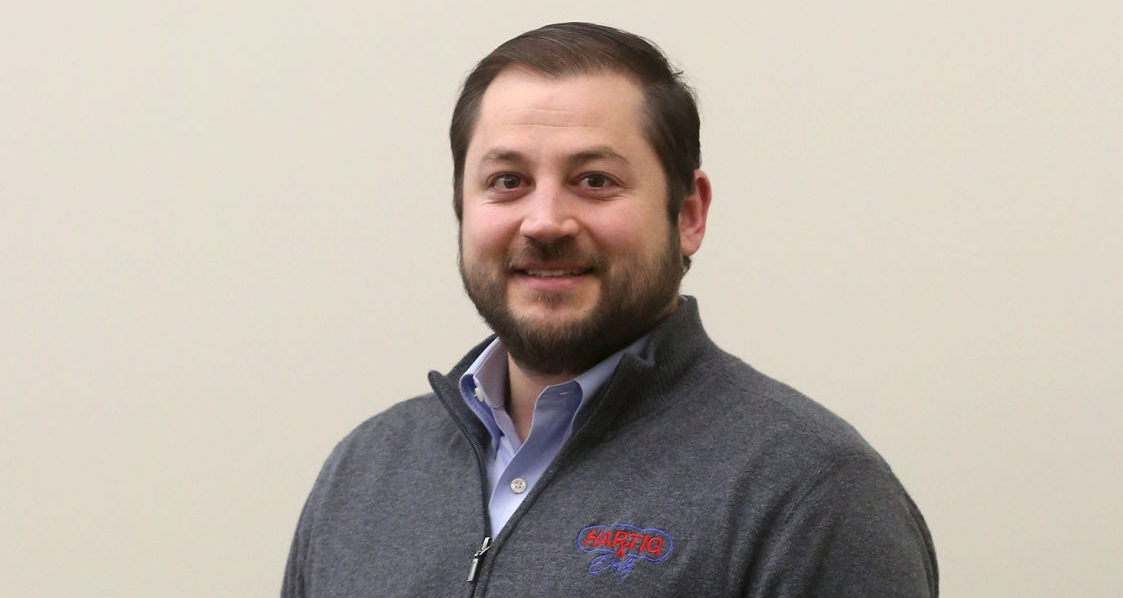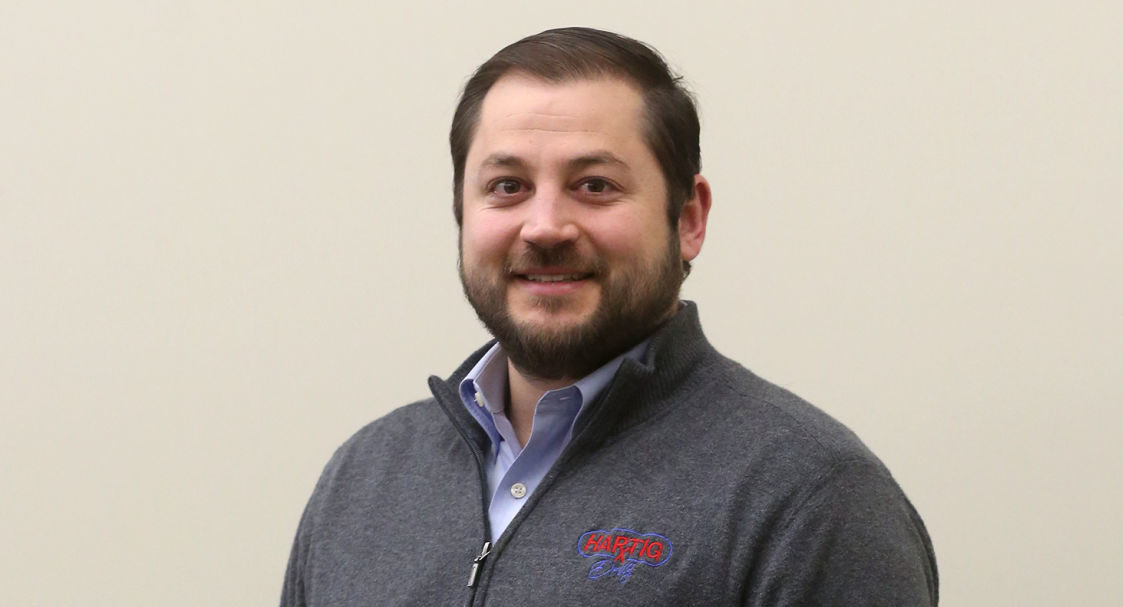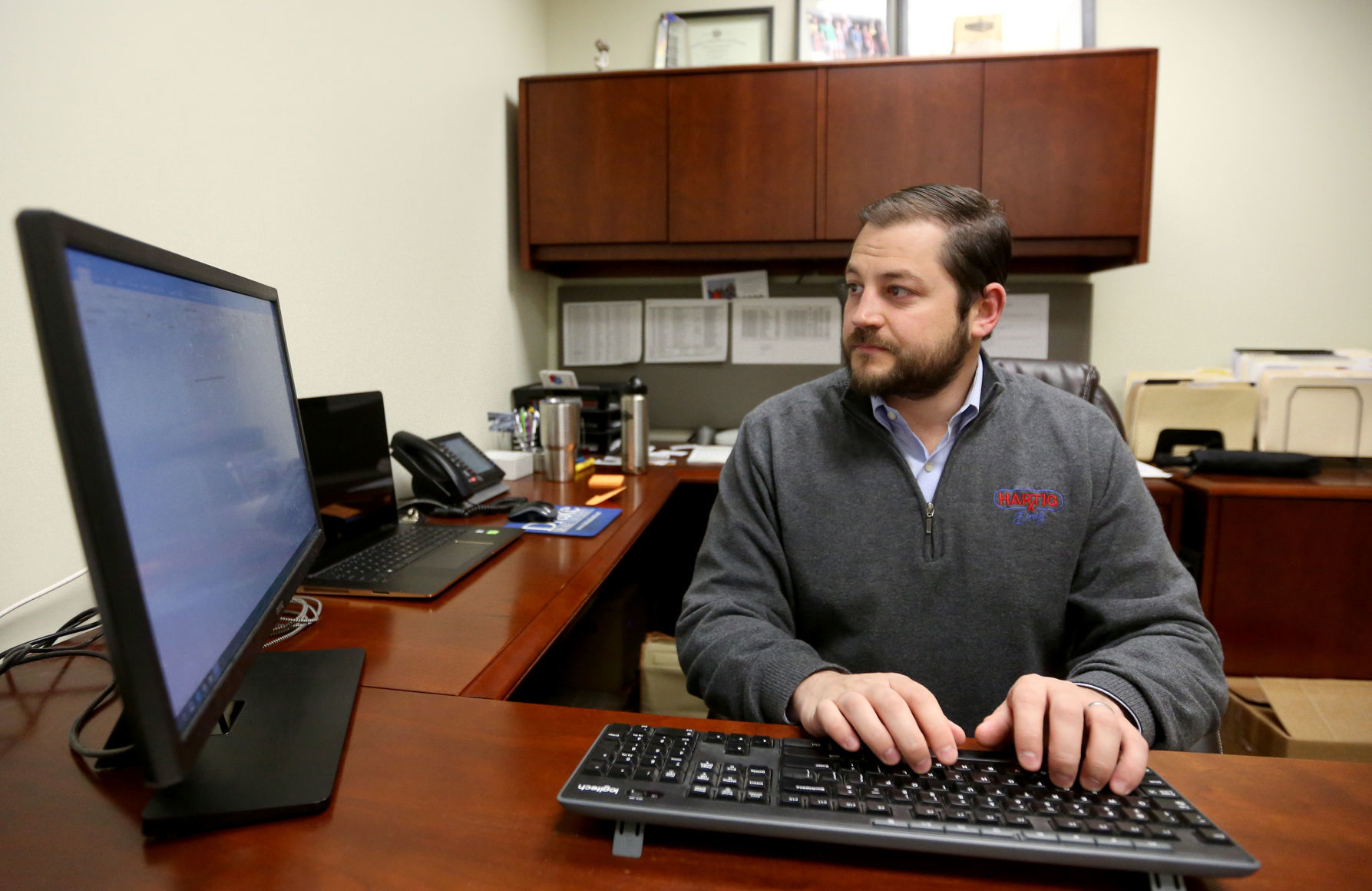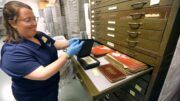Charlie Hartig, Hartig Drug Co. Chief Executive Officer
Charlie Hartig serves as Chief Executive Officer of Hartig Drug Co., a local, family-owned and operated group of pharmacies located in Iowa, Wisconsin and Illinois.
Hartig Drug was founded in 1904 by Hartig’s great-grandfather, A J. Hartig. Through its community pharmacy, senior care (LTC) pharmacy, hospital pharmacy and durable medical equipment locations, Hartig Drug Co. is committed to providing convenient, personalized health consulting, pharmaceutical products and consumer goods.
Prior to his role as CEO, he served as vice-president and general counsel of Hartig Drug, responsible for all aspects of the pharmacy and legal strategies. Hartig also served in roles of increased responsibility as a Senior Legal Counsel for CVS Health and Regulatory Compliance Counsel with Omnicare Inc., both industry-leading Fortune 500 companies in the pharmacy industry.
Hartig serves on the board of Hillcrest Family Services, Drake’s College of Pharmacy National Advisory Council, Drake’s President’s Circle and several other pharmacy trade organization boards. He graduated with honors from Drake University (PharmD) and Saint Louis University (JD), where he also received a Certificate in Health Law.
Hartig and his wife, Katie, live on the south side of Dubuque with their 15-month-old twins (Albert and Mathilda), black lab mutt (Mavis) and tabby cat (Fraser). He looks forward to going for hikes with the family at Swiss Valley and Mines of Spain, getting outside for Iowa’s deer season and traveling abroad — although that’s been on hold since the twins were born.
Can you name a person who has had a tremendous impact on you as a leader?
My dad, Dick Hartig, continues to impact how I lead Hartig Drug Co. My dad was the president and CEO of Hartig Drug and worked at the company for more than 46 years. Anyone who knows Dick Hartig knows he is an exceptionally hard worker and that no task is too small — I have so many stories to tell and most of them start with a smudge on the pharmacy floor or a sink that needed cleaning. That type of humility and work ethic in any leader is paramount in a family-owned business.
As a consumer-facing, family-owned business, you must lead by example and roll up your sleeves to take on tasks that you ask employees to perform. In my humble opinion it’s the best way to learn your business, lead and serve your employees and communities. I learn more about our customers and employees while working a shift as the pharmacist-on-duty or taking an hour to help our employees stock toilet paper on the shelves (something I’ve done a few times lately).
What are the most important decisions you make as a leader of your organization? There are two types of decisions that I see as vital to the sustainability of a health care and retail driven organization like Hartig Drug. First, decisions that impact the patient and consumer experience. Hartig Drug has been in business for more than 115 years and we wouldn’t be here if we didn’t listen to our customers and treat them with the respect and care that we would our family members. Our goal is to treat everyone “like family,” listen to constructive feedback and demonstrate empathy as a health care resource and traditional retailer — especially in these unprecedented times with COVID-19.
Second, decisions that affect the quality of life for our employees are equally important. For example, making sure we provide flexible work arrangements, where possible, and continually review employee benefits. Many of our employees reach out to me directly to ask a question or raise concerns. I love that employees feel comfortable reaching out directly.
As an organization gets larger, there can be a tendency for the “institution” to dampen the “inspiration.” How do you keep this from happening? As a growing small business with 25 locations across the tri-state, this is a constant challenge. We try to address these concerns by communicating regularly with employees through normal mediums (e.g., calls, emails, etc.). But the way we really stay connected is through store visits, manager meetings and senior management working in the stores with our employees. For example, I usually schedule myself for pharmacy shifts when our pharmacists have vacation, short-notice sick leave or other obligations. Our other corporate staff also pitch in at our various locations whether it is performing inventory, stocking new supplies or jumping in to help on a very busy day. My goal is that every employee sees me in the pharmacies every few months. Given the unprecedented nature of the COVID-19 pandemic, that hasn’t been possible these past two months because my focus has been on quickly changing logistical, sourcing and regulatory/legal environments.
Which is more important to your organization — mission, core values or vision? It’s all important, but our mission statement drives our “today.”
What is one characteristic that you believe every leader should possess? I believe that every leader should be adaptable and open to change. Especially in light of recent events, leaders need to be quick on their feet to change while not losing sight of the organization’s mission, short-term and long-term goals. This also comes with the ability to take on many non-traditional roles and tasks in the organization.
What advice do you have for future leaders? There are many risks associated with today’s current economic and health care environment. It is easy to consider risks, like COVID-19, as obstacles. I think the best piece of advice I can offer is to view these risks as an opportunity to learn, master new skills or develop new market opportunities.
What lessons can leaders take away from the current pandemic? The current COVID-19 pandemic is highlighting which organizations can adapt and change quickly. Whether it’s Hartig Drug’s ramp up of free delivery and curbside options, Blaum Brother’s distillery’s quick shift to producing hand-sanitizer or the many changes by our hospital partners around the tri-states — the ability to quickly change direction in order to establish safe and efficient practices that allow an organization to be sustainable is critical.
What are two or three of the best things about being a leader? My favorite part of being a leader in the pharmacy industry is the fact that I can positively influence and impact the way we delivery pharmacy care. I get excited when we have a new opportunity to help our patients and customers discover a new service, learn more about medication or recognize savings for medication costs.
The next best thing about being a leader in the pharmacy industry is the ability to partner with some amazing organizations in and around the tri-state. I love that we can source products from local entrepreneurs like Tranel Family Farms or partner with March of Dimes for the tri-state to raise money for its annual March for Babies.








